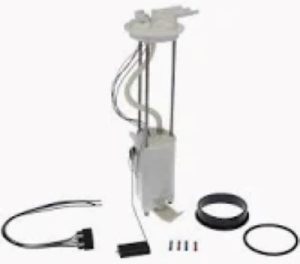The ideal Fuel Pump pressure differs in each vehicle, depending on the type of engine, and usually ranges between 30 and 60 psi for a standard gasoline engine. This range ensures a correct and balanced air-fuel mixture, necessary for efficient combustion. An engine performs best when it maintains the pressure within this range continuously, thus helping in smooth acceleration and fuel efficiency. Some high-performance engines, especially turbocharged ones, require much higher fuel pressures, well in excess of 60 psi, to satisfy higher fuel demands. Pump deliverances of 80 to 100 psi or more in certain high-performance applications may be called for to ensure adequate fuel delivery during high-speed or high-load conditions.
Maintaining the right amount of pressure increases fuel economy by as much as 10%. The reason is that stable pressure ensures guaranteed fuel injection. A loss of pressure below recommended levels results in lean conditions where too much air and too little fuel are taken into the combustion chamber. This, naturally, would reduce efficiency and have the potential to make the engine hotter, creating further possible misfires. Automotive experts recommend periodic fuel pressure testing, as even a slight deviation drastically affects performance. A good Fuel Pump maintains this balance and therefore helps to avoid stalling, hesitation, or poor acceleration.

Besides fuel economy, optimum pressure prevents damage to the engine components due to the fact that it supports constant fuel flow without straining the injectors or fuel lines. That makes the delivery at the right pressure by the Fuel Pump all the more critical under high demand applications like racing or towing. Racing applications, in particular, create fuel demands well over 250 liters per hour and require pumps that are specifically rated to sustain high pressures under such loads without fluctuation. Since these regulators regulate fuel flow according to engine demand, pressure regulators are major contributors in maintaining the balance and saving the Fuel Pump from overwork, thus prolonging its life.
Regular checks of pressure assure that the Fuel Pump works within the recommended range, indeed which supports the best performance and durability of an engine. This maintenance of pressure by drivers will surely be effective in ensuring fuel consumption, minimizing emissions, and avoiding expensive repairs due to pressure differences-a fact that has made it a key area in vehicle service and performance.